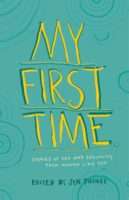Damaria Senne
The year was 1985. I had just turned 17, I was at university and living away from home for the first time. Having been raised by over-protective parents, I hadn’t ever been anywhere or done anything without a family member present. Moving away from Phokeng in the North West Province to Fort Hare University in the Eastern Cape was a challenge for me.
I wasn’t assimilating well into university life. The culture was different and the academic demands onerous. Regular student strikes resulted in a strong police presence, which made me feel even less secure in the environment. I was getting increasingly worried that these challenges would result in my failing, which would have been disastrous because my parents were paying for my studies. They needed me to graduate from university on schedule so they could focus on educating my younger brother. My parents couldn’t afford to pay full university fees for both of us at the same time—I had to pass or fall by the wayside.
I was therefore relieved when one of my lecturers offered to tutor me privately. After I arrived at his office on time for our first appointment, we talked about why I was having problems with his subject and how he could help me. But then he stood up, walked around his desk and pulled me to my feet. I was stunned.
Did I mention that many 12 year olds I interact with today know more about the opposite sex and how to rebuff unwanted attention than I did at 17? My mind shut down when he pulled me into his arms, all I could think about was getting away. I struggled and shouted and pushed at him until he let me go.
The man spoke rudely to me, with a few words in isiXhosa which I didn’t understand, but the tone was unmistakeable. As I grabbed my books and left, I realised the door had been open all along and people must have walked by. Sometimes I wonder how that incident would have ended if he had closed the door—would he have let me go when I struggled?
I’d love to say that my lecturer was embarrassed by the event and treated me with respect from then on, but that would not be true. The incident became a starting point for his campaign to undermine me and he chose to attack my work, where it hurt the most.
He didn’t give me the opportunity to ask questions in class, even when I raised my hand to attract his attention. I missed chunks of information when he sometimes spoke in isiXhosa. He never indicated that the incident was in the past, so I couldn’t relax and focus on my studies. I remained afraid of him and my studies faltered. I remained silent in shame, not telling my friends about the incident or explaining why I was suddenly persona non grata to that lecturer. Nor did I report the incident to authorities, though thinking back, I realise there was a lecturer who would have helped me if he had known.
What I did do was study harder and work more closely with my classmate friends so they could ask the questions in class I couldn’t. With relief, I passed at the end of the year and took the opportunity to transfer to another university. A less-known and less-respected university, but I was thrilled to continue studying in a less hostile environment.
Later I learnt that the lecturer regularly had affairs with female students, yet many people condemned the students’ actions and said nothing about the lecturer. As an adult now, I realise that those female students must have felt they had little choice in the matter. If others sugar-coated these students’ harassment and abuse and chose to call it an affair, what could the students do?
I also discovered that the lecturer had daughters. I wonder how he would have reacted if he learnt that the people teaching his children were acting as reprehensibly as he had. Would he have seen wrong in his actions, if it had hit closer to home?
Damaria Senne is a writer and publisher who loves tech toys, gardening and renovating old houses.


